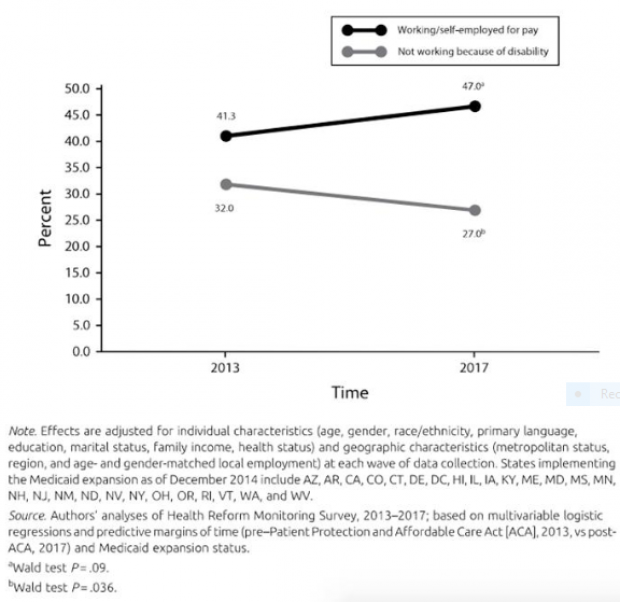People with disabilities are more likely to be employed in states that expanded Medicaid under the Affordable Care Act, according to a new study published in the American Journal of Public Health. Expansion states have also seen a decline in the number of people who report that they could not work due to disability. Neither trend has occurred in states that did not expand Medicaid, the study found.
The authors – Jean Hall and Noelle Kurth of the University of Kansas, Adele Shartzer of the Urban Institute, and Kathleen Thomas of the University of North Carolina – say that their study shows that expanding health care coverage creates real economic benefits, reducing the cost of unemployment and boosting tax revenues as more people go to work.
And there’s reason to think that the finding would apply to non-disabled working poor as well. "Our argument is that, over time, those who are better able to manage their health would have a better ability to be employed," Hall said in a press release.

The study comes amid a debate over the Trump administration’s effort to impose tougher work requirements on Medicaid recipients. A report from Fitch Ratings last week warned that, aside from health effects, such efforts create new costs as states are forced to build new tracking and reporting systems.
“Kentucky's Medicaid administration costs increased more than 40%, or $35 million, from the prior biennium to $116 million, which Fitch partially attributes to implementing Medicaid work requirements,” the report said.
Reducing health care coverage is also problematic for the medical system as a whole, Fitch said: “Medicaid enrollment declines could also mean more uninsured, pressuring healthcare providers, and state and local governments, as they often provide aid to hospitals treating uninsured patients.”




